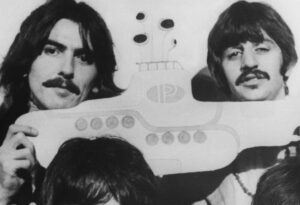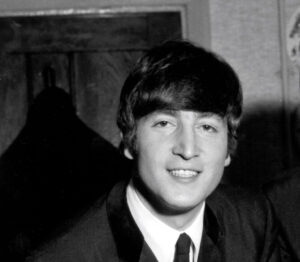Elvis Presley, the legendary King of Rock and Roll, was known not only for his iconic music but also for his complex personal life. One aspect of his life that has often been scrutinized is his perspective on women. It’s widely believed that his theory about women played a significant role in the downfall of his most important relationship. This article delves into the theory, its implications, and its impact on his relationship with Priscilla Presley.
The Theory:
Elvis Presley’s theory about women can be summarized as his belief that women were best suited to a certain traditional role, emphasizing qualities of innocence, naivety, and submissiveness. This theory was rooted in the societal norms of the time, where women were often expected to be homemakers and caregivers, rather than equal partners in a relationship.
Impact on His Relationship:
Elvis’s relationship with Priscilla Beaulieu, who later became Priscilla Presley after marrying him, is considered one of the most significant relationships in his life. They met when Priscilla was just 14 years old and Elvis was serving in the U.S. Army in Germany. Their relationship grew over time through letters and visits, and they eventually married in 1967. However, the theory about women that Elvis held would prove to be a significant obstacle.
As their relationship progressed, it became clear that Priscilla was not content with conforming to the traditional role that Elvis envisioned for her. She was ambitious, independent, and sought her own identity. She desired a more equal and modern partnership, which clashed with Elvis’s theory about women. This divergence in their aspirations and expectations gradually strained their relationship.
The Unraveling:
While the theory about women might have resonated with the cultural norms of the 1960s, it ultimately proved to be detrimental to Elvis and Priscilla’s relationship. Priscilla’s growing desire for independence and a more equitable partnership clashed with Elvis’s expectations. The strain became evident in their daily life, with Priscilla feeling confined by the traditional role that Elvis expected her to embrace.
The theory also contributed to communication breakdowns between the couple. As Elvis held onto his traditional views, he struggled to empathize with Priscilla’s need for autonomy. The lack of mutual understanding and compromise led to resentment and frustration on both sides.
Conclusion:
Elvis Presley’s theory about women, influenced by the societal norms of his time, had a significant impact on his most important relationship with Priscilla Presley. As she sought independence and a modern partnership, the clash between her aspirations and his traditional views created an irreparable rift. Their relationship eventually ended in divorce in 1973.
Elvis’s theory about women serves as a reminder of the challenges that can arise when personal beliefs clash with evolving societal norms. It also underscores the importance of open communication, mutual respect, and the willingness to adapt in maintaining healthy and lasting relationships. While Elvis’s music continues to captivate audiences, his personal struggles highlight the complexities of navigating love and relationships in a changing world.



